Elijah M. Lamkin, 11th Michigan Volunteers, Civil War Archive Incl. Stones River and Chickamauga Content
About Seller
6270 Este Ave.
Cincinnati , OH 45232
United States
With offices in Cincinnati, Cleveland and Denver, Cowan’s holds over 40 auctions each year, with annual sales exceeding $16M. We reach buyers around the globe, and take pride in our reputation for integrity, customer service and great results. A full-service house, Cowan’s Auctions specializes in Am...Read more
Two ways to bid:
- Leave a max absentee bid and the platform will bid on your behalf up to your maximum bid during the live auction.
- Bid live during the auction and your bids will be submitted real-time to the auctioneer.
Bid Increments
| Price | Bid Increment |
|---|---|
| $0 | $25 |
| $500 | $50 |
| $1,000 | $100 |
| $2,000 | $250 |
| $5,000 | $500 |
| $10,000 | $1,000 |
| $20,000 | $2,500 |
| $50,000 | $5,000 |
| $100,000 | $10,000 |
About Auction
Jun 26, 2020
Cowan's Auctions is delighted to present the June 26 American Historical Ephemera and Photography Auction, including 55 lots devoted to the African American experience, over 175 lots dating from the Civil War Era, and more than 60 lots documenting life in the American West. Cowan's Auctions dawnie@cowans.com
- Lot Description
Elijah M. Lamkin, 11th Michigan Volunteers, Civil War Archive Incl. Stones River and Chickamauga Content
Lot of 7 letters from Private Elijah M. Lamkin (Sept. 5, 1830-Nov. 26, 1916) written during his service in the Civil War. Letters dated December 1861-September 1863 including accounts of the Battle of Stones River and Chickamauga.
A fascinating collection of letters from Elijah M. Lamkin who served in the 11th Michigan Infantry and participated and wrote about the Battle of Stones River (WIA) and the Battle of Chickamauga. Lamkin was a private who enlisted on August 24, 1861 in London, Michigan into Company I of the 11th Michigan Infantry. A farmer from Monroe County, Michigan, his limited schooling is evidenced by his poor spelling and grammar (which have been edited here). Interestingly, in these letters to his friend Henry Palmer back in Michigan, his penmanship was quite good and his turns of phrase possess romanticism and charm.
In his first letter (December 4, 1861), he relates the relative comfort many soldiers felt in the early days of the war, writing “I am getting as fat as a little pig; they call me Little Fatty. I have enjoyed good health since I left your place.” In a brief note [December 1861?] on patriotic stationary, Lamkin identifies himself as “Unkel Sams boy.” He records the journey from Michigan through Indianapolis and Louisville, eventually reaching Bardstown, KY, reporting on December 16, 1861 that “We have a good deal of sickness. We lost one man in Louisville; he died with the bloody dysentery. We have a great many cases of this kind here. We expect to stop here some time until we get better. We have the Small Pox in our regiment and we are not a-going to travel much till we get better. I have not got it yet but know not how soon it will be before I do."
Later in the war, Lamkin would serve in two of the bloodiest battles of the war. He wrote to Palmer on January 29, 1863 in the aftermath of the Battle of Stones River (Second Battle of Murfreesboro) stating simply, “We have been in a very large fight.” He goes on to elaborate his experience, detail his wounds, and marvel that he survived. “I hope that I shall never see such a time again. The lead flew about my head like hail stones. The soldiers fell around me but I was still spared through the battle. I expected every minute when it would be my turn to fall on the battlefield but I stood the storm and came out not being hurt very bad. I was wounded in the big tone on the right foot with a buckshot and another ounce ball went through the front piece of my cap and threw the crown off it just grazing the air on the top of my head.” In the same letter he challenges Palmer’s perception that, “the South was like a disobedient boy that wanted one good licking then they would come to terms” ultimately concluding that, “The South is too gritty, they will never give up. They will keep up the thing until the United States are ruined. Then they will have to quit.” Lamkin also laments the futile nature of the violent conflict, noting that, “This is the third time our men have been in possession of this place and what does it amount to? The loss of lives and property; that is the sum and substance of the war. I am getting tired and sick of it and the quicker the thing closes the better I think.”
His final letter to Palmer, dated September 5, [1863], was written in the depths of the Chickamauga Campaign on the precipice of the Battle of Chickamauga. Lamkin writes from Chattanooga, “I would like to give you the details of the late battle we have had. We have had an awful fight and it ain’t done yet. Our Pickets are within fifty rods of each other and have been for the last two weeks. They have exchanged papers most every day with the enemy... . The enemy drove us but we still hold our position yet. We hold the town and strongly fortified.” As he writes, the shelling starts again, “Since I commenced writing the cannons have opened again. We have not had any fighting for about 15 days but the thing has begun again. I can tell how the thing is going to come out. I don’t know when I can send this out. Oh, I had forgotten to tell you that I was well and enjoying myself the best that I can although it is not very pleasant to hear the shells humming and bursting around your, or my, head. The enemy’s shells come now within about 12 rods of me since I commenced this letter and burst. The cannonading is pretty heavy now.”
After the war, Lamkin returned home in London Township, Michigan and resumed farming. He wed Martha Delilah Lamkin (née Sabin, 1843-1923) around 1865; they would have six children together, all of whom lived to adulthood. Elijah died at age 86 on November 26, 1916 and is buried in London.Very occasional spotting.Condition
- Shipping Info
-
Buyers are required to pay for all packing, shipping and insurance charges. Overseas duty charges are the responsibility of the successful Bidder. Be aware that for larger and/or valuable items, shipping charges can be substantial. - If there is no shipping amount on listed your invoice, you will need to make arrangements to pick up or ship your purchase through an alternative shipping company. Our shipping department can be contacted at 513.871.1670 (ext. 219) or email shipping@cowans.com. - Shipping charges include insurance for your order while in transit. If you have private insurance we will adjust your charge to include only packing and shipping. - Please allow 14 – 21 days after payment to package and ship your purchase as carefully as possible.
-
- Buyer's Premium



 EUR
EUR CAD
CAD AUD
AUD GBP
GBP MXN
MXN HKD
HKD CNY
CNY MYR
MYR SEK
SEK SGD
SGD CHF
CHF THB
THB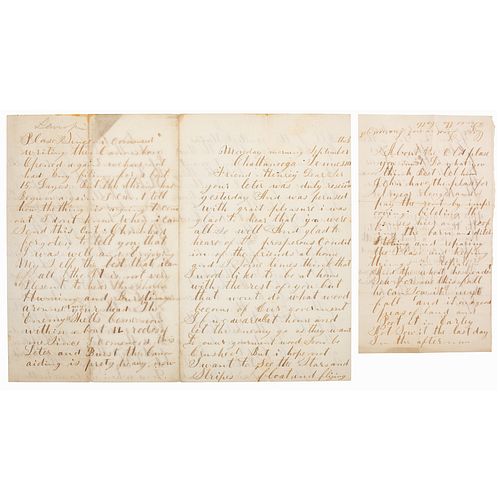

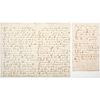
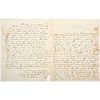
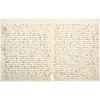

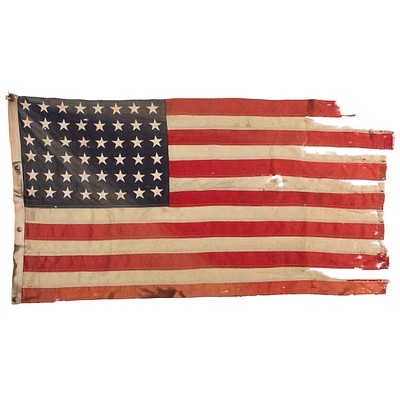






![[MEDICAL HISTORY] Craig Gutta-Percha Microscope Base](https://s1.img.bidsquare.com/item/m/2904/29046456.jpeg?t=1Ttr6w)
![[CIVIL WAR] William T. Sherman CDV Portrait](https://s1.img.bidsquare.com/item/m/3259/32590994.jpeg?t=1UVtrf)
